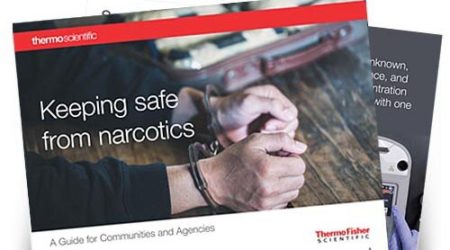Drug crises, according to Charles Fain Lehman, tend to follow the re-emergence of a drug, which leads to addiction and its accompanying issues. This is true of the captagon problem in the The Gulf Cooperation Council (GCC). Initially prescribed for conditions like ADHD, narcolepsy, and depression, Captagon® (chemical name fenethylline) was widely banned in the 1980s over concerns about its high abuse potential. It was included in Schedule II of the United Nations (UN) Convention on Psychotropic Substances 1971, but some stocks of the drug were not destroyed until the early 1990s. Research suggests that traffickers were able to divert fenethylline stocks during this period, primarily from Eastern Europe to other Arabian Peninsula. Herein lies the root of the captagon crisis in the Middle East.
Understanding the Middle Eastern Drug Market
Narcotic analysis has shown that, as supplies of authentic fenethylline dwindled, other substances were added to fill the gap. Today, practically all seized tablets purported to be Captagon® prove to be illicitly manufactured tablets which contain amphetamines and are embossed to resemble the original medicine. This form of clandestine captagon production appears to have occurred first in Bulgaria and Turkey, but is now mainly based in the Middle East. The EMCDDA reports that Syria and Lebanon are the chief manufacturers of the highly addictive illicit drug but that Europe still plays a role in how those drugs are trafficked. This report shows that many large captagon shipments seized in the European Union (EU) were manufactured in the Middle East and were intended to be rerouted towards the Arabian Peninsula, particularly Saudi Arabia.
The Syrian government was implicated in this illicit trade network as early as 2014. It was associated with militants who reportedly consumed the drug for increased focus on the frontlines. Now that President Bashar-al-Assads’ forces have retaken most of the country, this supply has turned into a lucrative financial lifeline for the regime. There are no official figures, but estimates places the value of the fake captagon market at several billion dollars per annum.
Saudi Arabia have attempted to curb the spread of captagon in the Gulf, but it is a complex, multifaceted, and ongoing issue. Crackdowns have shown success, however. The United Arab Emirates recently made headlines with the seizure of 13 tonnes of Captagon pills, valued at over $1 billion, hidden in a shipping container. This operation, one of the largest of its kind, underscored the massive scale of Captagon trafficking and the challenges facing law enforcement agencies in the region.
Europe’s Growing Alarm
Europe’s concern over captagon is twofold: the potential for increased trafficking into the continent and the ramifications of its use on societal health and security. Experts believe that smugglers may attempt to identify new consumption markets in light of greater obstacles preventing trade in the Gulf.
Recent seizures in Greece and Italy signal the drug’s encroaching presence, urging European policymakers and law enforcement agencies to brace for its impact. Narcotic analysis shows that amphetamine sulfate is the main ingredient in all seized captagon pills. Fenethylline was not found in a single case. The tablets typically also contain caffeine, and often other substances such as theophylline, paracetamol, lidocaine and diphenhydramine (and by-products of amphetamine synthesis such as N-formylamphetamine).
Addressing the Captagon Crisis: A Call for International Cooperation
Combatting the spread of captagon necessitates a multifaceted approach. Law enforcement and border controls must be equipped with the right tools to identify illicit substances, so that international agencies have the information they need to combat their spread on a larger scale. Narcotic analysis can provide a basis for international cooperation, knowledge sharing, and support for nations grappling with production and smuggling are crucial.
Bringing lab-level accuracy to the field can empower law enforcement agencies to act swiftly and efficiently. But it is important to maintain focus on the need for a coordinated, comprehensive strategy to stem the tide of illicit drugs.
References & Further Reading:
- https://www.nationalaffairs.com/publications/detail/how-to-think-about-the-drug-crisis
- https://www.emcdda.europa.eu/news/2023/7/new-report-shows-europe-key-transhipment-area-captagon-bound-arabian-peninsula_en
- https://www.emcdda.europa.eu/publications/technical-reports/captagon-trafficking-and-role-europe_en
- https://www.thermofisher.com/us/en/home/industrial/safety-security-threat-detection/applications.html#narcotics
- Case Study: Turkey at the Crossroads: Targeting illicit drug traffic with Gemini analyzers






Leave a Reply